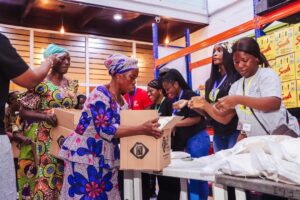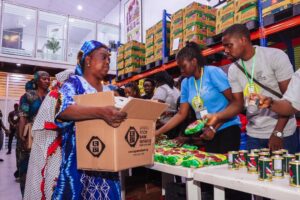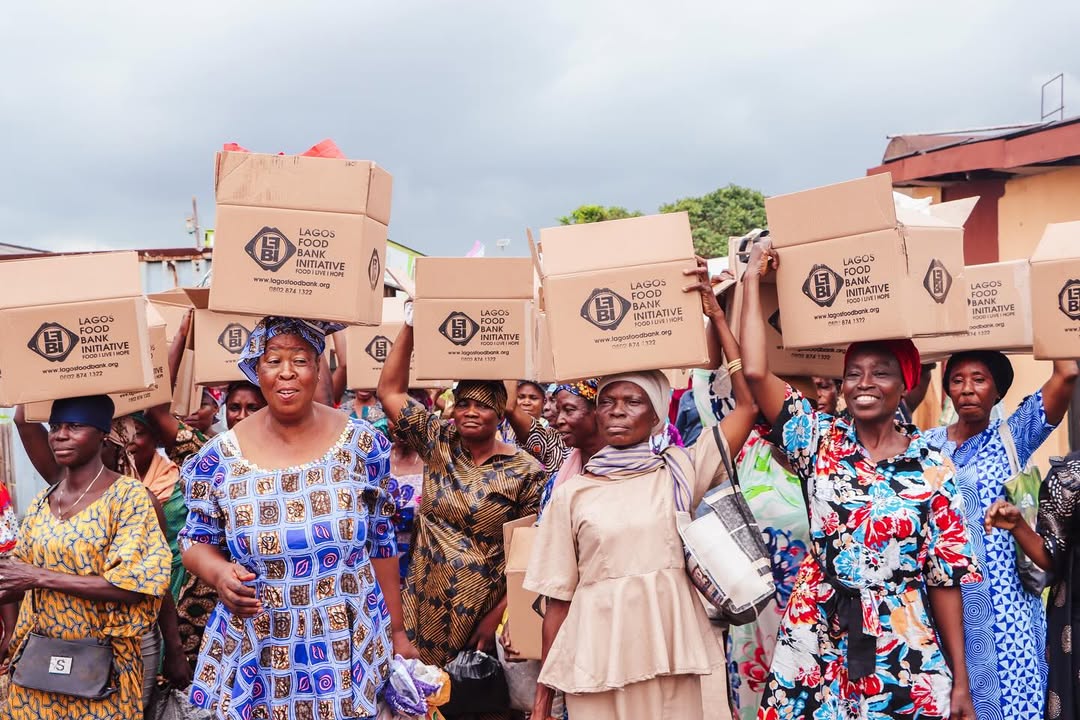On September 27, 2025, the Lagos Food Bank Initiative through its Temporary Food Assistance Program (TEFAP) once again reached families in low-income communities. The outreach which took place at the Food Bank Warehouse in Ikeja provided not only food relief but also dignity and hope to families affected by food insecurity. The program, with a strong focus on women and people living with disabilities aligns with the UN’s Zero Hunger goal (SDG 2),
The outreach was not food distribution as usual. Instead of receiving pre-packed boxes, beneficiaries enjoyed a shopping-style experience, moving from one food group to another and filling their bags with items. Unlike regular shopping, however, none of the foods could be left unselected because every food item was nutritious, culturally familiar, and essential for daily meals. Each bag held enough to sustain a family of four to five people for over two weeks. The joy was written on their faces, echoed in their laughter, and felt in their gratitude.

Volunteers were not just behind the scenes; their effort was visible and heartfelt as they guided women through, demonstrating their dedication to make impact in the lives of others and sharing in their excitement.
And because life’s basic needs go beyond food, clothing items were also shared, giving families a chance to redirect their limited resources toward good nutrition.


One beneficiary described the Lagos Food Bank as “a household name in her community”, known for not only distributing food and relief items but also for empowering women and youth through other programs.
A volunteer, reflecting on the day, shared a powerful thought:
“Despite the quantity of food wasted on farms and in homes, there is still enough to reach hungry people — if only those with excess commit to sharing with those nothing. Organizations like Lagos Food Bank are the bridge to reach families in dire need of food relief.”
The outreach ended with full bags, brighter smiles, and renewed hope, proving once again that hunger is not insurmountable if access to nutritious food is seen from a human right lens and not as a privilege.


